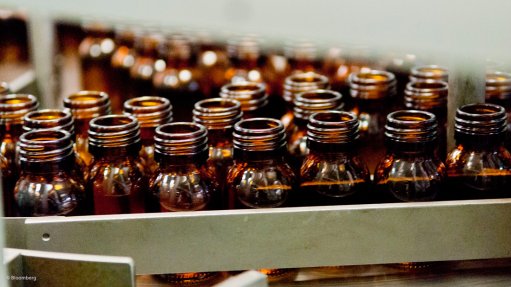
Rally behind industrialisation and become industrial activists. That’s the message from Stavros Nicolaou of Aspen Pharmacare, who says it is critical for South Africa to boost its manufacturing capacity.
“Industrialisation has to be at the core of economic policy. Unless we grow our economy at 5% or beyond, we won’t curb social tensions,” Nicolaou told the Manufacturing Indaba Western Cape in a keynote address.
He called on companies and other players to speak to their constituencies about industrialisation.
“We need to start exporting products more. Everyone has a role to play as an industrial activist.”
Nicolaou, who is Aspen’s senior executive for strategic trade, called on medical aid schemes and retailers to play ball. He said medical aid schemes often tended to buy foreign products above locally manufactured products for a very small saving.
“If you say you are saving 10c or 15c on a product, it’s not actually a saving. You are losing out on linkages and downstream activities in South Africa. We cannot take procurement decisions in the country when we say we are saving R1 a pack in medicines, but losing R3.50 to the economy.”
He said the focus needed to be on ‘buying local’ as well as exports to grow the manufacturing industry, which employed more than 1.6-million people in the country and contributed 11% to the gross domestic product (GDP).
Over the last two decades, the share of manufacturing in South Africa had slipped from 23% of GDP to only 11%. Nicolaou said there were many opportunities to bring this right up to 30%.
“If we promote preferential procurement and beneficiate products better in the domestic market, we will confront manufacturing challenges head-on. We need to confront those sectors, whether government line departments or in the private sector. Get them to support local. If they don’t the social tensions in South Africa will continue.”
Aspen’s experience has shown that South Africa has world-class manufacturing and employees. The company, which is active in 76 markets globally, has around 30 factories, 17 of which are in South Africa.
“Most of our manufacturing happens in South Africa. When we acquire factories in Australia, Germany and France for example, we land up relocating a lot of that manufacturing back into Port Elizabeth.”
He said South Africans employed in Port Elizabeth were globally competitive and very skilled. “They can teach a thing or two to our German or French employees.”
The Manufacturing Indaba Western Cape was held in a bid to boost manufacturing growth in the province. Manufacturing is currently the second biggest sector in the Western Cape, after the financial services sector. It contributed 15% to the South African manufacturing sector output of R300-billion in 2012. Products include heavy-duty industrial equipment, vehicle parts, electrical equipment and clothing and textiles.